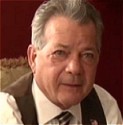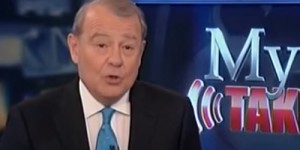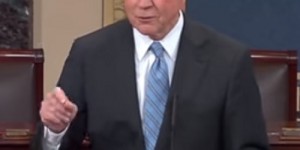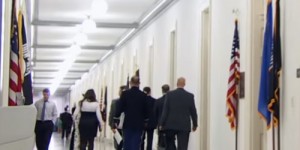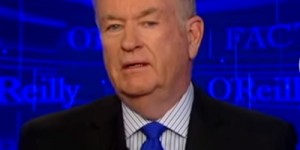Houston Chronicle — Michael Vickers has been on what he likes to call the front lines in the battle against illegal immigration for more than a decade, finding dead bodies of migrants on his South Texas ranch.
Just 70 miles from the Mexico border, the area has been a busy crossing for migrants. And it’s now attracting renewed attention after President Barack Obama announced his sweeping executive action for immigrants in November. Since then, Vickers said he’s seen an uptick in people wanting to join Texas Border Volunteers, which he founded in 2005.
“Everybody’s frustrated. It’s just insane to do what he’s proposing,” the 65-year-old veterinarian said. “All that’s going to do is create more traffic, more illegal smuggling, more dead bodies in Brooks County. We have absolutely nothing to gain and everything to lose.”
Obama’s changes would provide work permits to 4.7 million immigrants who’ve been here illegally for years and strengthen border security, though few details have been released as to how. But federal officials have said recent border-crossers are now their highest priority.
Still, Vickers isn’t alone in worrying about the executive order’s impact. Powerful conservative national grass-roots groups like NumbersUSA and Heritage Action are rallying supporters to pressure Congress. Others are joining militia groups like the one Vickers leads or myriad others with names like the Oathkeepers and American Patriots which sprung up or resurged after an influx of Central American children on the Southwest border this summer. In all, conservative groups expect the flurry of anti-immigration activity to escalate this year as lawmakers return.
“People are discouraged and disgusted,” said Larry Korkmas, the tea party-aligned president of the Houston-based Texans for Immigration Reduction and Enforcement. “There has been self-mobilization all over.”
Maria Espinoza, director of the Remembrance Project, a Houston-based nonprofit based focused on honoring Americans who’ve been killed by immigrants here illegally, said her members are closely monitoring how Congress acts.
“Our families are asking for the bare minimum here, lawfulness,” she said, calling Obama’s action illegal. Espinoza, the daughter of a Mexican immigrant who came here on a work visa in the 1950s, said her group’s membership has grown across the nation because there’s a need.
“Every time an American is killed by someone who wasn’t supposed to be here in the first place, that’s personal,” she said.
Unlike previous high-profile immigration clashes focused on California and Arizona, Texas now is the battle’s center stage
“Arizona pretty much replaced California as the hot spot for several years but Texas is so much bigger and once Texas takes on something big it just kind of takes over the room,” said Roy H. Beck, who heads NumbersUSA, an advocacy group focused on reducing immigration. “I’d say on this immigration fight that’s happening.”
It’s a marked shift for the state, as for decades Texas Republicans were GOP outliers on immigration, allowing, for instance, in-state public college tuition for youth here illegally, approved by Gov. Rick Perry.
“Texas has always been happy with being a border state, its mixed cultures,” Beck said. “The Texas way of dealing with its Mexican-American population has always been different. It’s the Texas exceptionalism.”
The major immigration crisis unfolded first in California, which passed Proposition 187, a controversial 1994 ballot measure limiting social services to immigrants here illegally. It was later found unconstitutional The California Minutemen Project exploded into a nationwide movement with hundreds of militia groups patrolling the Arizona border in 2005. They helped stymie a GOP effort at immigration reform attempted under then-President George W. Bush.
Since then Arizona has taken the lead in pushing for tough anti-immigration laws, including one in 2010 requiring police to determine someone’s immigration status if there’s “reasonable suspicion” they’re here illegally.
But the anti-illegal immigrant movement largely faded from public view after Mitt Romney lost his 2012 presidential bid. The number of armed border patrols dwindled from more than 300 at its peak in 2010 to just more than 30 in 2013, said Mark Potok, a senior fellow at the Southern Poverty Law Center, an Alabama-based civil rights organization monitoring hate groups.
Intense infighting between the groups split them, Potok said. Criminal scandals, most notably the 2011 murder conviction in Arizona of vigilante Shawna Forde for shooting and killing a 29-year-old Hispanic man and his 9-year-old daughter, shamed the movement. Many conservative state legislatures adopted policies for which the groups had advocated.
“It looked like the politicians were doing the work these groups wanted and nothing much happened really until the unaccompanied children crisis,” Potok said.
The arrival of more than 63,000 Central American children in South Texas last year thrust immigration into the spotlight, making it a major political crisis. About 17 militia “teams” are active on the Texas border, more than in any other state, according to the website Patriot Information Hotline, which helps recruit and organize groups. Many formed human chains blocking immigrants at the border. Two militia members were arrested for having explosives and possessing firearms as felons. And in July, Chris Davis of Von Ormy, a 37-year-old commander of the militia group “Operation Secure Our Border: Laredo Sector,” said in a since-deleted Youtube video, “You see an illegal. You point your gun dead at him, right between his eyes, and you say, ‘Get back across the border or you will be shot.'”
Meanwhile Texas Republicans’ stance on immigration has moved right. In the last eight years, Perry, a likely 2016 presidential contender, has spent more than $800 million on beefed-up border security, touting it as an example of his leadership. Gov.-elect Greg Abbott is leading the charge to unravel Obama’s executive action by challenging its legal authority. New Lt. Gov. Dan Patrick has pledged border security as his top priority, and has warned immigrants “are bringing Third World diseases with them.” In all, the new state Legislature, convening in January, is more conservative on immigration than it has ever been.
Serious activism trying to undo Obama’s executive action will pick up in January, said Ira Mehlman, spokesman for the Federation for American Immigration Reform, a Washington D.C.-based organization pushing for limited immigration.
“People are still coming to grips with the scope of the amnesty,” he said. “But generally our members aren’t taking to the streets for mass rallies, that’s something for the other side. Our people are showing up at townhall meetings, members’ offices, they’re phoning, they’re emailing.”
It’s unclear how effective these groups can be. A poll released this month by the Pew Research Center and USA Today found the public is essentially equally divided over executive action. Fifty percent disapprove and 46 percent approve.
And if anyone could have stopped executive action, they would have already done so, said Frank Sharry, executive director of America’s Voice, a national immigration reform group.
“They have no viable strategy to stop it,” he said. “They’ve been exposed as a weakened force that just makes a lot of noise.”
At the same time, Border Patrol figures show that in the past two months apprehensions of immigrants crossing the southwest border illegally fell 24 percent to 51,129 compared to the same period last year. In all, immigrant apprehensions – considered the best gauge for how many are crossing illegally – are at their lowest levels since the 1970s, according to the Department of Homeland Security.
Nevertheless in Brooks County, Vickers said his group recently wrapped up a four-day mission helping catch about 20 migrants a night, five times more than they saw throughout the fall.
“Our traffic has quadrupled in just a few weeks,” he said. “This executive action is just going to be another magnet.”


